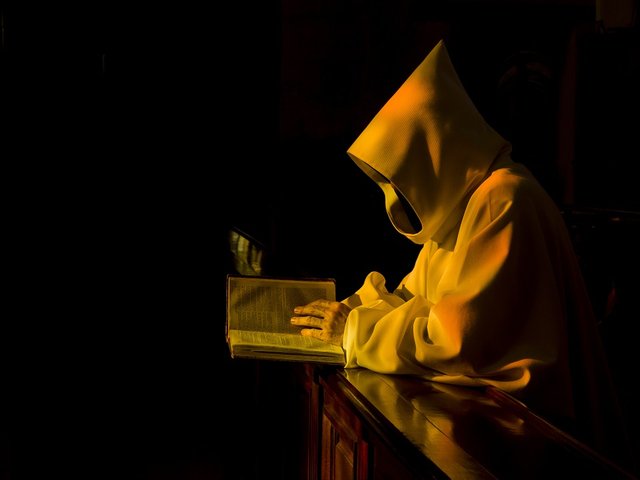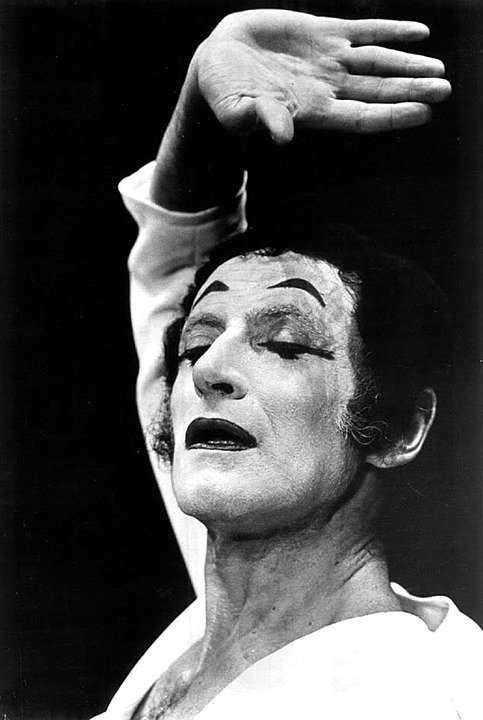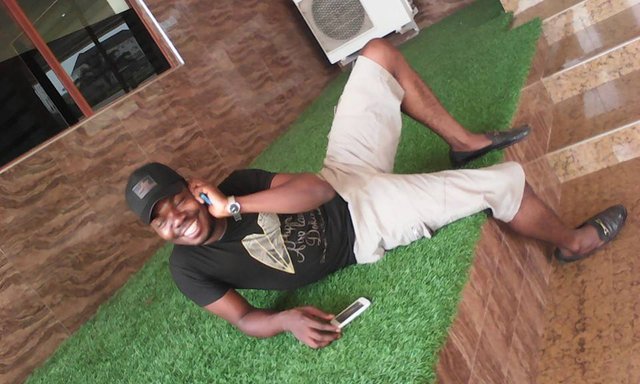Notes on Silence — Part 1

THE MANY SILENCES
Cultivating silence can also mean cultivating attention, so that we are present to ourselves and the deeper life that is continually unfolding within and around us. We may begin to do so by investigating the silences available to all of us, knowing them better as well as their judicious uses. Three categories we can explore in some depth are: silence as language (wordless communication), as entity (physical presence in nature) and as a kind of metaphysical portal (for contemplation, meditation, transcendence).
As a language, silence can be the thing and its opposite: eloquent or clumsy, despairing or serene. It can be polite, communicating respect, empathy, or even a form of restraint - - i.e. abstaining from unkindness, or being drawn into argument or pernicious gossip. Or it can be impolite, transmitting anger or hostility -- such as a sullen, resentful silence.
Moreover, it can mean varying things within different cultural contexts. For example, a silence that is considered socially embarrassing or awkward in a Western setting is not at all in parts of the Far East (such as China or Indonesia). In fact, the contrary can be true. Most notably in Japan, where silence is deeply valued; it is eloquence that is regarded with suspicion, since verbosity is often associated with a certain superficiality. In Japanese, there is even a word for wordless communication --haragei -- used to refer to the preferred modes of expressing emotional matters.
Which is to say, as a means of wordless communication, silence is as fluid and protean as the emotions and situations it is born of, often conveying what words cannot. As poet Rainer Maria Rilke confesses: “Things aren't so tangible and sayable as people would usually have us believe; most experiences are unsayable, they happen in a space that no word has ever entered.”

With their arsenal of ravishing phrases, poets are perhaps most acutely aware of how words fail us; are not there when we reach for them. Here is T.S. Eliot elegantly bemoaning the shortcomings of his bread and butter:
Words strain
Crack and sometimes break, under the burden
Under the tension, slip, slide, perish
Decay with imprecision, will not stay in place
Will not stay still.
What’s more, not all of us have the right words, or find them at all times. Such as when silence lodges itself in our mouth or throat, when we are handed an unexpected piece of bad news, leaving us stunned and speechless. Confronted with the enormity of a situation, we are simply left with a silence that is as authentic, integral and universal as body language; shrugging off the need for words, altogether.
As an entity too, Silence can be difficult to define. For it is not merely the absence of sound, but may be perceived as an actual physical presence, as well. The elemental silence found in the natural world is a case in point: whether it is relative (in the forest, or underwater) or absolute (as within the desert, before a storm or, ultimately, in outer space). There may be grades to silence in the natural world, but such encounters with it as an entity may be said to represent a kind of auditory equivalent to stillness.

Anyone who has crept upon a morning, for a stroll at dawn knows this holy hush. Just as someone who has experienced sound swallowed whole in the mysterious silent underworld of the sea, or drunk deeply of the quietude of desert air will also be familiar with this sense of the numinous -- where Time appears to collapse and one is afforded glimpses into Eternity. Great beauty silences. Even if accompanied by the rich tapestry of the sound of creatures quietly going about their daily affairs, silence is the solemn companion of nature enthusiasts and can presence like the very pulse of Being.
Here is how spiritual teacher, Krishnamurti, describes this mystical state: "And it is only where there is space and silence that something new can be that is untouched by time/thought. That may be the most holy, the most sacred -- may be. You cannot give it a name. It is perhaps the unnamable.” Grappling with such mysticism and the unnamable is harder for philosophy, but the younger Kant makes an attempt at it: “In the universal silence of nature and in the calm of the senses the immortal spirit’s hidden faculty of knowledge speaks an ineffable language and gives [us] undeveloped concepts, which are indeed felt, but do not let themselves be described.”
Yet another category of silence is that of portal. One is said to ‘enter’ and ‘emerge’ from this state, as though it were an actual physical territory. We cannot forcibly break-in and enter, or rush through this portal to arrive at a meditative-reflective state; but instead must patiently wait to be granted access. Sculptor Rodin’s Thinker is a monument to this invisible art of turning inward. He is not seen surrounded by others, in the midst of conversation, but rather depicted quite alone -- lost in thought and found in silence.

There are also temples of silence -- secular spaces of worship, study and healing where silence is cultivated, such as: libraries, museums, hospitals, cemeteries and prisons. On account of the intellectual, moral, or spiritual seriousness of such spaces, they foster a certain respectful reflection, thereby permitting us to pass through this silent portal.
Reading, can act as a springboard to access this region of the soul, where one is transported, and our external surroundings seem to fall away like so much dead skin (to the extent we may even become oblivious of our own bodies). Extolling the pleasure and spiritual edification of the written word, bibliophile Susan Sontag describes reading as “that disembodied rapture . . . trance-like enough to make us feel egoless.”
Quiet reverie, or the art of (apparently) doing nothing might be another route to ‘disembodied rapture,’ and can also serve as an escape from the tyranny of Self, Space, and Time. Within this realm, we are free to travel backwards and forwards, conjuring up both memories and fantasies. Not as frivolous as this may seem, such flights of imagination are necessary for our sanity, affording us a creative space for playful inner work and a restorative psychic flushing out (of daily toxins such as pressure or worry).
Obviously, prayer is a central portal to access this condition of blissful silence. We see it prescribed in Sufi wisdom writings stressing the significance of seeking inner silence, or Buddhist injunctions to let the mind become silent to attain enlightenment, or in Quakerism, as a feature of worship, where silence is an occasion for the divine to enter the heart. More extremely, in the case of Trappist monks, a life-time commitment to silence aims to foster solitude in community as well as a mindfulness of God. All of these varying notes reverberate in Ralph Waldo Emerson’s inclusive definition of prayer as “the soliloquy of a beholding and jubilant soul.”

Meditation, without silence, is inconceivable. Here, stillness and self-emptying are requisite in order to attain any kind of calm or peace. In mysticism -- perched as it is on the precipice of all organized religions -- Rudyard Kipling is repeatedly refuted, and the East and West do regularly meet. In the pregnant prescription of one who devoted an entire book of thoughtful meditations to this subject, Christian philosopher Max Picard: “Silence is listening.” And, as attentive practitioners of this metaphysical art may sense, it can sometimes be unclear who is doing the actual listening… us, or Silence itself.
Otherwise, dissimilar spiritual traditions -- Hindu, Buddhist, Taoist, Jewish, Christian, Muslim, and Native American -- all agree on the importance of observing silence as a tool for inner growth/self- transformation. More recently, based on scans of Buddhist monks’ brains, the young science of Neuroplasticity indicates that meditation actually alters the structure, and functioning of the brain. In other words, our thoughts and silences can, in effect, change our minds, and even our lives: the ultimate goal of philosophy or religion.
Moreover, these three categories of silence -- communication, entity and portal -- need not inhabit separate spheres and exist in the same medium. For example, while in media technology -- i.e. television and radio -- silence is perceived as ‘dead air’, the three silences are successfully employed to dramatic effect within the Arts. This is evident in theatrical work, or a piece of music, or even stand-up comedy where silence may be used to communicate nuance and depth, or else serve as a pause for reflection on the parts of viewers and listeners.
© Yahia Lababidi

(Images: Pixabay)

If you enjoyed this essay, I hope you'll also like these posts:
How Books Can Be Like (Ex)Lovers: https://steemit.com/writing/@yahialababidi/how-books-can-be-like-ex-lovers
The Evil Eye in Egypt & Around the World: https://steemit.com/writing/@yahialababidi/the-evil-eye-in-egypt-and-around-the-world
You'll Know—Short, Spiritual Meditation on DSound: https://steemit.com/dsound/@yahialababidi/short-spiritual-meditation--dsound-recording-2--youll-know-original-poem
Sometimes I feel that there is a place beyond silence, a place where, having turned so far inward, you have turned inside out. A place where sound is negative. To make an utterance from there one would first need to exceed the deficit. I guess the Kant quote points to that. The Rilke quote too. To make ever more deeply unworded things sayable.
It's also like Goethe's idea that darkness is more than the absence of light, that darkness is active and has intensity. How did he say it? Colours are the deeds and sufferings of light. I need to think about it more! Enjoyed your article very much.
What a dense and profound response, @mjhomb. Yes, I think Silence is the beginning of infinity or a taste we’re afforded here of eternal things... I love this phrasing: ‘to make ever more deeply unworded things sayable.’
Wow, what did Goethe not know? His boundless curiosity & eloquence are truly humbling. Will be musing on this wise aphorism, too... “the deeds and sufferings of light”.
Thank you, for sharing your rich reflections with me; I dare say you’ll enjoy part II of this essay :)
Words are powerful, in this day & age they are used so carelessly it’s making speech idle. I use my words like precious gems, they come a dime a dozen. So when I say something don’t hesitate or think I’m bluffing ! HA
Wow, you are a fast reader! However did you get through my 2 essays in such record time?
Yes, words matter, and that’s why we should not say what we mean (and mean what we say).
🙏🏼
Beautiful write-up. Make it snappy in your next post. People are busy and hardly have time for long essay as yours.

Thank you, for taking the time to read it through.